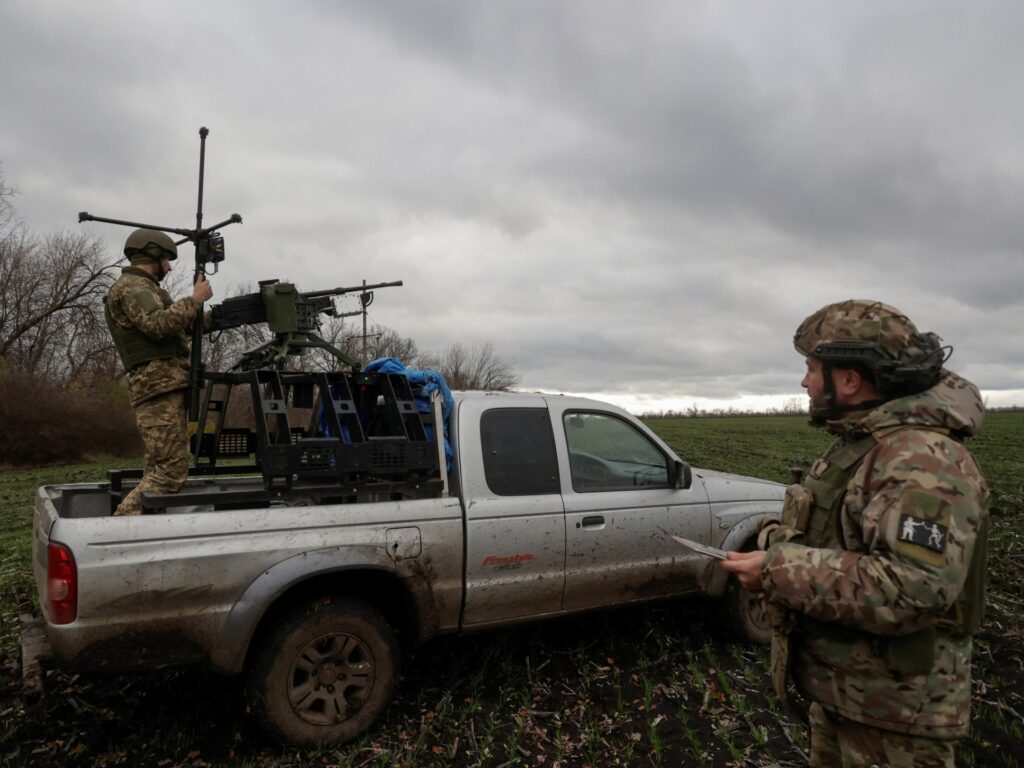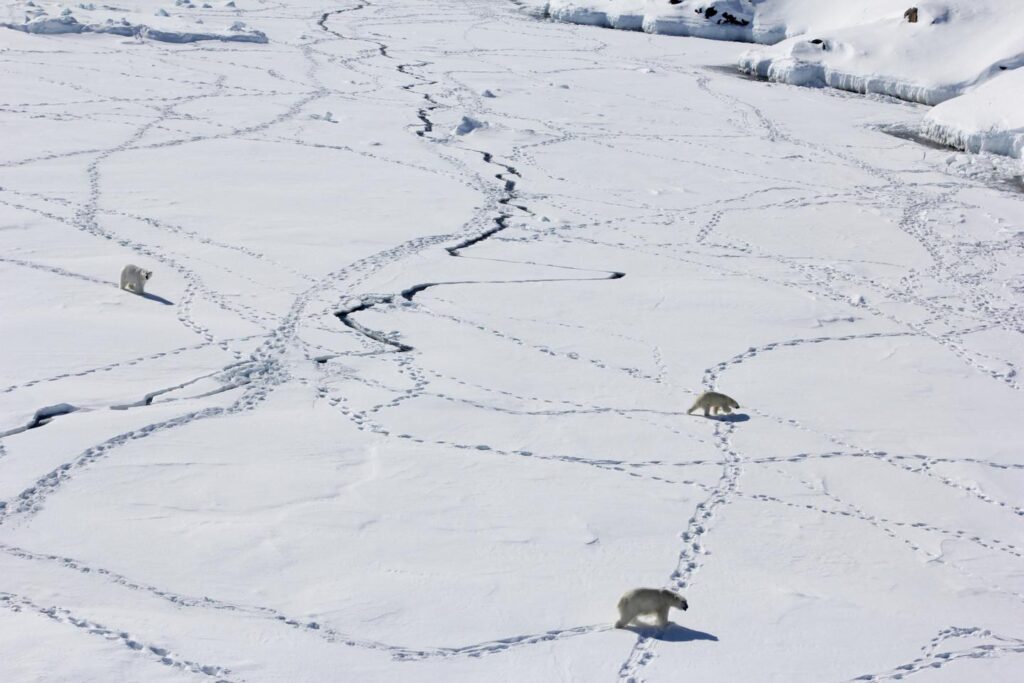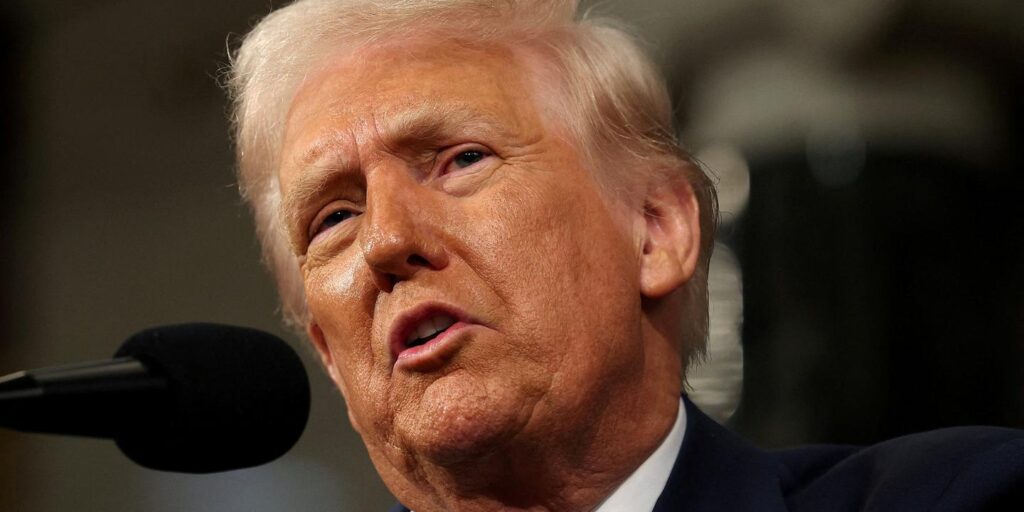Here are the key events from day 1,359 of Russia’s war on Ukraine.
Published On 14 Nov 2025
Here is how things stand on Friday, November 14:
Fighting
- Russian forces launched a “massive” attack on Kyiv early on Friday, Mayor Vitali Klitschko said, with air defences in action and a series of explosions reported in the capital.
- Klitschko said falling debris had struck a five-storey apartment building in Dniprovskyi district on the east side of the Dnipro River, and a high-rise dwelling was on fire in Podil district on the opposite bank.
- Ukrainian President Volodymyr Zelenskyy visited troops near Ukraine’s southeastern front line, where he warned of the need to shore up defences after his troops lost ground in increasingly high-intensity battles far from Russia’s main offensive in the east of the country.
- President Zelenskyy said the situation near the city of Orikhiv in the Zaporizhia region was “one of the most difficult” along a sprawling front line and that thwarting Russian forces there was key to shielding Zaporizhzhia city.
- Ukraine’s military said its troops hit a Russian oil terminal in occupied Crimea and also an oil depot in the occupied Zaporizhia region.
- The Ukrainian General Staff said Russian oil facilities and other military targets were hit by domestically produced weapons, including the “Flamingo” ground-launched cruise missile, drone missiles, and drones.
- Russia’s Ministry of Defence said its forces have captured two more Ukrainian settlements: Synelnykove in the Kharkiv region and Danylivka in the Dnipropetrovsk region.
- Russian air defence units destroyed and intercepted 130 Ukrainian drones overnight over Russia, the state-run TASS news agency reports, citing daily data from the Defence Ministry in Moscow.
Peace talks
- The Kremlin said Ukraine would have to negotiate an end to the war “sooner or later” and predicted that Kyiv’s negotiating position would worsen by the day.
- Russian Foreign Minister Sergey Lavrov has said he hoped Washington would take no actions liable to escalate the Ukraine conflict.
- Lavrov said United States President Donald Trump had long advocated dialogue with Russia, had sought to fully understand the Russian position on Ukraine and “demonstrated a commitment to finding a sustainable peaceful solution”.
- “We are counting on common sense and that the maintaining of that position will prevail in Washington and that they will refrain from actions that could escalate the conflict to a new level,” Lavrov said.
Ukraine energy scandal
- German Chancellor Friedrich Merz and President Zelenskyy have discussed the $100m energy corruption scandal that has engulfed Kyiv, the German government said in a statement.
- Zelenskyy pledged complete transparency, long-term support for independent anticorruption authorities and further swift measures to regain the trust of the Ukrainian people, European partners and international donors, the statement said.
- Ukrainian Prime Minister Yulia Svyrydenko also announced an audit of all state-owned companies, including in the energy sector, following the scandal that has led to the suspension of two cabinet ministers.
- The European Bank for Reconstruction and Development (EBRD) said it is lending 22.3m euros ($26m) to a Ukrainian energy firm as part of a pipeline of deals, signalling its ongoing support for the sector despite the corruption scandal.
- The EBRD cash will go to private Ukrainian energy company Power One to finance new gas-piston power plants and battery energy storage systems, the lender said in a statement.
Aid to Ukraine
- The International Monetary Fund (IMF) will soon begin a staff mission to Ukraine to discuss its financing needs and a potential new lending programme, IMF spokesperson Julie Kozack said.
- Ukraine is in talks with the IMF about a new four-year lending programme for the country that would replace its current four-year $15.5bn programme. Ukraine has already received $10.6bn of that amount.
- European Commission President Ursula von der Leyen told the European Parliament that the European Union could either borrow the money needed to cover Kyiv’s financial needs in 2026 and 2027 against the collateral of its long-term budget, or each EU country could borrow on its own and extend a grant to Ukraine.
- A third option was a proposal from the Commission to organise a loan that would effectively become a grant, on the basis of the Russian central bank assets frozen in the EU. European finance ministers agreed that funding Ukraine with a reparations loan based on immobilised Russian assets would be the most “effective” of the three options being considered.
- Europe’s top development banks and Ukrainian energy firm Naftogaz signed a deal to provide an EU grant of 127 million euros ($127m) in additional funding to the firm, on top of a 300 billion euro loan ($349bn) it outlined last month to secure Ukraine’s natural gas supply, amid the ongoing attacks on Ukraine’s infrastructure by Russia.
- Nordic and Baltic countries will together contribute $500m to the Prioritised Ukraine Requirements List arms initiative, their defence ministers said in a joint statement.
Russian sanctions
- About 1.4 million barrels per day of Russian oil, or almost a third of the country’s seaborne exporting potential, remain in tankers as unloading slows due to US sanctions against energy firms Rosneft and Lukoil, according to US financial services firm JPMorgan.
- Bulgaria’s parliament has overruled a presidential veto on legislation allowing the government to take control of Lukoil’s oil refinery and sell it to shield the asset from looming US sanctions.
- Bulgarian President Rumen Radev had attempted to veto a move by lawmakers giving a government-appointed commercial manager powers to oversee the continued operation of Lukoil’s refinery in Bulgaria beyond November 21, when the US sanctions are due to take effect, and to sell the company if needed.
- Russia’s Port Alliance group, which operates a network of sea cargo terminals, said foreign hackers had targeted its systems over three days in a distributed denial of service (DDoS) attack and an attempted hack.
- The group said critical elements of its digital infrastructure had been targeted with the aim of disrupting export shipments of coal and mineral fertilisers at its sea terminals in the Baltic, Black Sea, Far East and Arctic regions. The attack was successfully repelled, and operations remained unaffected, Port Alliance said.


